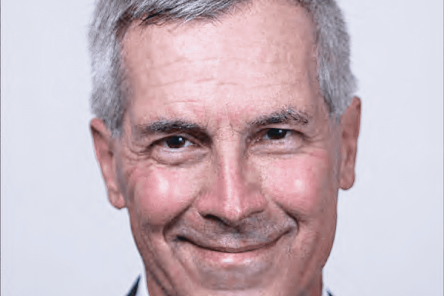Empirically Guiding Medical Device Regulation and Policy

The modern era of medical device regulation, which was created by the Medical Device Amendments of 1976, will soon pass its 50th anniversary. Critics from a wide range of perspectives have urged reforms—some minor, some far-reaching—to many aspects of the regulatory regime. Unfortunately, we lack a solid empirical understanding of how well the current regime serves its many goals, including ensuring safety and effectiveness, allowing or even facilitating innovation, and controlling costs. In this talk, I will discuss device regulation, the policies it serves, and my ongoing empirical work aimed at developing an empirical basis for reform proposals.
George Horvath joined the UC Law SF faculty as an Associate Professor of Law in 2024. His scholarship combines his background as a practicing physician and medical scholar with empirical and doctrinal legal analysis to study the fraught intersections of law and health care. His work examines the ways in which statutory, regulatory, and implementation choices about the FDA’s role in regulating medical devices and drugs has impacted safety and innovation. His work also explores the ways in which multiple regulatory systems function together to create “emergent” regulatory systems whose effects on medical products are often quite different from those of any one system. Professor Horvath has been selected as a St. Louis University/American Society of Law, Medicine and Ethics Health Law Scholar (2022), a Loyola Chicago Wiet Life Sciences Law Scholar (2017, 2019, 2021, 2022), and an American Association of Law Schools Section on Law, Medicine, and Health Care New Voice in Health Law (2022).
Prior to joining the UC Law SF faculty, Professor Horvath was an Assistant Professor of Law at the University of Akron School of Law. Prior to that, he was a postdoctoral Fellow in Public Law at the University of California, Berkeley, School of Law. He clerked for Judge John T. Noonan, Jr. on the Ninth Circuit Court of Appeals. Professor Horvath earned his J.D. at Berkeley Law, where he served as Editor-in-Chief of the California Law Review. Prior to his legal career, Professor Horvath earned his M.D. at Temple University Medical School and practiced as a cardiologist specializing in the treatment of heart rhythm disorders. He authored or co-authored over twenty articles that were published in the Journal of the American College of Cardiology, Circulation, Archives of Internal Medicine, and other medical journals.

